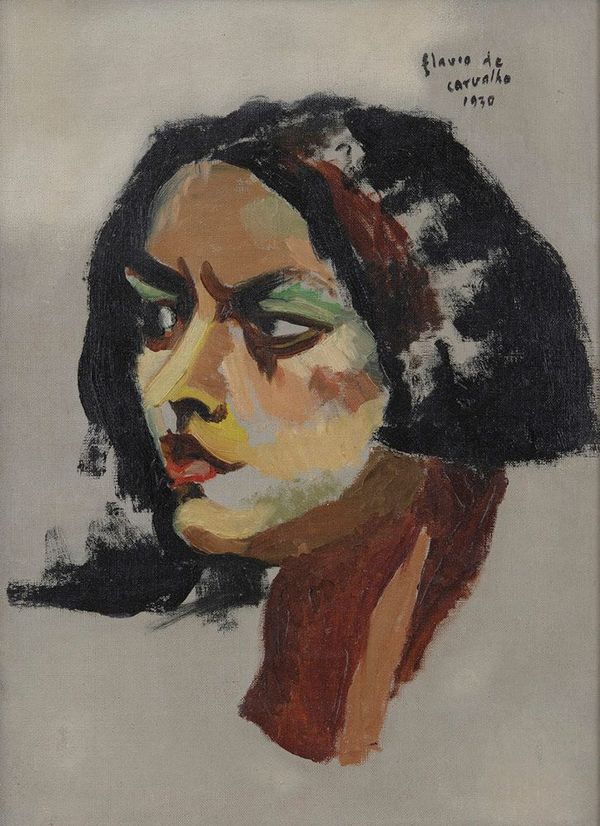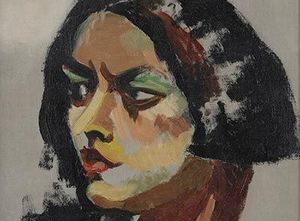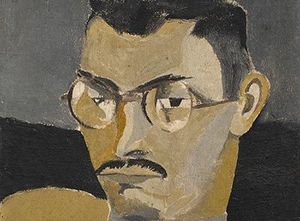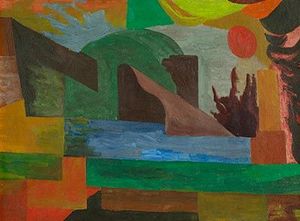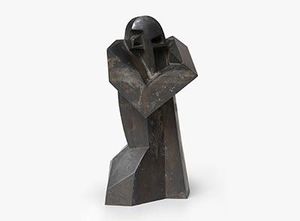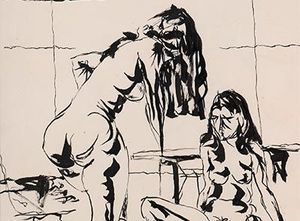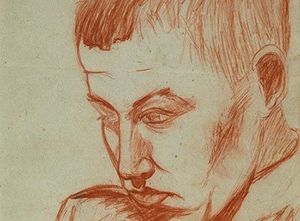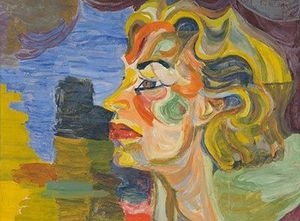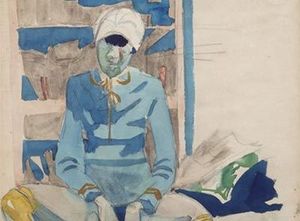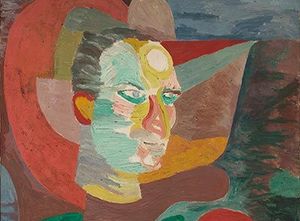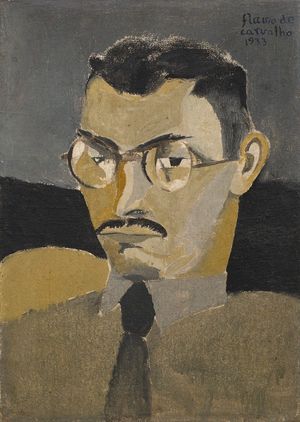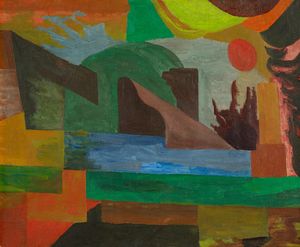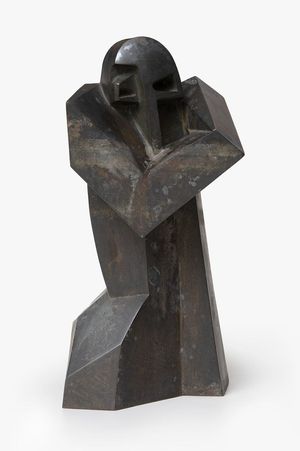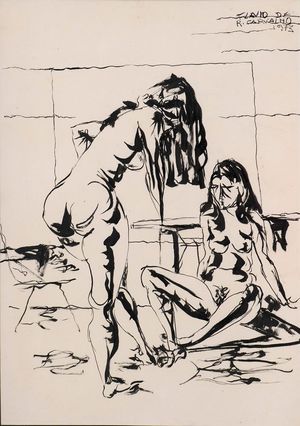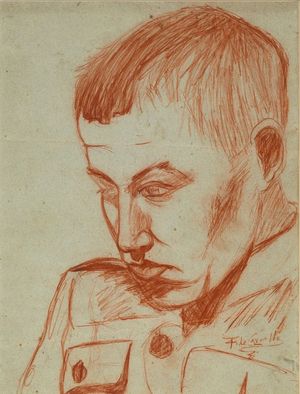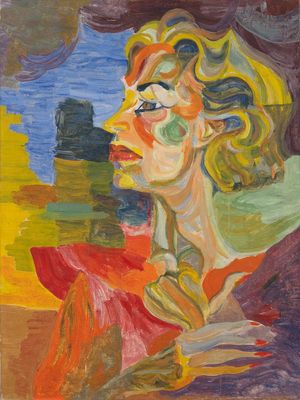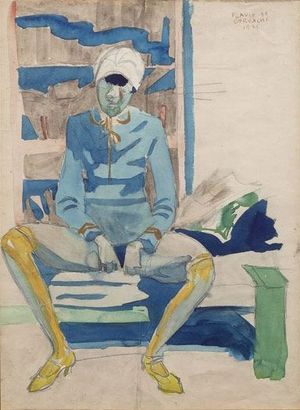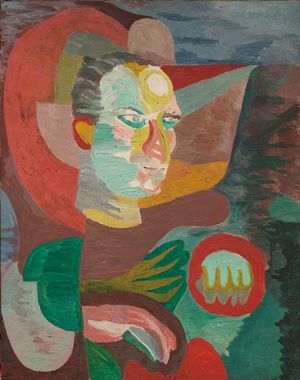A singular modernist, with an experimental and multifaceted production, Flávio de Carvalho was an architect, visual artist, theoretician and cultural agitator, as well as being a key figure to the Brazilian performing arts. He is the author of O bailado do Deus morto, a play staged for the first time in 1933 at the inauguration of the Teatro da Experiência, a groundbreaking space dedicated to the performing arts in São Paulo. Flávio de Carvalho's relevance to Brazilian art history is largely attributed to the innovative and provocative nature of his aesthetic thinking and the interdisciplinary nature of his practice, which reflects a complex modernity in process. In the 1930s, he was one of the founders of CAM, the Club of Modern Artists. Considered by scholars to be one of the pioneers of performance in the Brazilian context, in 1931 he carried out Experience No. 2, a radical action in which he walked with his hat on against the flow of a Corpus Christi procession. The attitude outraged the devotees, who almost lynched the artist. In 1956, Flávio Carvalho carried out Experience No. 3, in which he walked down the street in his "New Look", a shirt and skirt ensemble, which caused a stir in downtown São Paulo. This experiment raised issues of fashion, customs and, ironically, promoted a debate on traditional culture at the height of the 1950s.
Flávio de Carvalho's choices converged towards an understanding of the individual. Subjectivity was a laboratory for the artist, who often tested "limit zones" with regard to extreme emotions and human conflicts, including aspects of death, religiosity and sexuality. Some critics also attribute a psychoanalytic content to his artistic production.
In addition, Flávio de Carvalho was an accomplished draughtsman with a degree in engineering and an intellectual fascinated by philosophy, architecture and the human sciences. Having studied engineering in England, he also studied at the King Edward VII School of Fine Arts. While there is a contemporary interest in the experimental Flávio de Carvalho, in which the originality of his performances and the artist's striking irreverence stand out, equally relevant are his paintings and drawings, which demonstrate a vast resourcefulness and the remarkable formalization of distinct themes.
Flávio de Carvalho's paintings, such as Portrait of Mário de Andrade, from 1939, show dynamic, expressionist lines and a controlled use of color that create different planes and an interesting relationship between figure and background. The brushstrokes are visible and characterized by heterogeneous dynamics, highlighting the face of the character portrayed, which is elaborated in more subtle brushstrokes, with the paint being poured onto the canvas.
Throughout his career, Flávio de Carvalho has produced numerous portraits of important personalities of his time and those close to him. These included poets, musicians, visual artists, psychoanalysts and writers. He was also involved in designing architectural projects in the city of São Paulo, such as Cidade do homem nu [City of the Naked Man], a kind of manifesto for a modernist city. The project, conceived by Flávio de Carvalho, shows a glimpse of this utopia of creating the "new man", very pertinent to the spirit of the avant-garde. In the artist's view, art and architecture could be united in favor of creating other cultural practices.
Flávio de Carvalho's works are part of important private and institutional collections. Among them are the Museu de Arte Moderna de São Paulo - MAM SP, Museu de Arte Brasileira - MAB FAAP, Pinacoteca Municipal do Centro Cultural São Paulo - CCSP, Fundação Edson Queiroz, Museu de Arte Contemporânea da Universidade de São Paulo - MAC USP, Acervo da Associação Paulista de Medicina and Instituto Moreira Salles - IMS.
